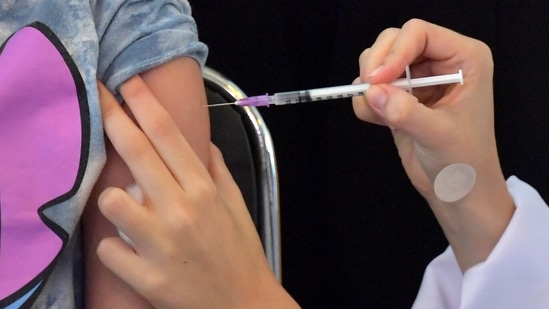Variant watch: Updated UK data shows efficacy drop after 6 months
The UK Health Security Agency, in its Technical Briefing 34, said that it found vaccine efficacy against hospitalisation remained at around 64% till 24 weeks, but the protection dropped if the second doses were taken more than 24 weeks ago.
The efficacy of two doses of vaccines taken six months ago in preventing hospitalisation after infection with Omicron fell to 44%, according to an updated analysis of hundreds of thousands of cases in England released on Friday.

The UK Health Security Agency, in its Technical Briefing 34, said that it found vaccine efficacy against hospitalisation remained at around 64% till 24 weeks, but the protection dropped if the second doses were taken more than 24 weeks ago.
UK has used vaccines made by AstraZeneca, Moderna and Pfizer as its main vaccines.
In a second analysis involving reinfection trends in health care workers, UKHSA found that those with a past infection as well as two vaccine doses had a 60% vaccine efficacy against symptomatic disease.
The protection in health care workers appeared to back recent lab studies that have shown people with a past infection and two doses of vaccines, who have a so-called hybrid immunity, have antibodies that are most potent in neutralising the Omicron variant, which otherwise is significantly resistant.
“In updated population data analysis, vaccine protection against mild disease has largely disappeared by 20 weeks after vaccination with a two-dose primary course of vaccination. After a booster dose, protection initially increases to around 65 to 70% but drops to 45 to 50% from 10+ weeks,” the report said.
The data largely reinforces the need for booster doses, but also holds out hope that those with hybrid immunity – likely a large population in India – may be better protected in the absence of third doses for at least slightly longer durations.
Over 700,000 Omicron cases were taken into account for the analysis.
Change in symptoms
The UKHSA assessment also found a significant difference in the nature of symptoms people reported after an infection with Omicron, compared to those who caught the Delta variant.
“Sore throat was more likely to be reported by cases with Omicron (53% of Omicron cases, 34% of Delta cases). On the other hand, loss of smell and taste was found to be less common among Omicron compared to Delta cases (13% of Omicron cases, 34% of Delta cases)”, the report stated.
Among the other symptoms that are more common with Omicron infections compared to Delta were fever, cough and diarrhoea, while symptoms red or irritated eye, sneezing, shortness of breath and runny nose had become less common.




